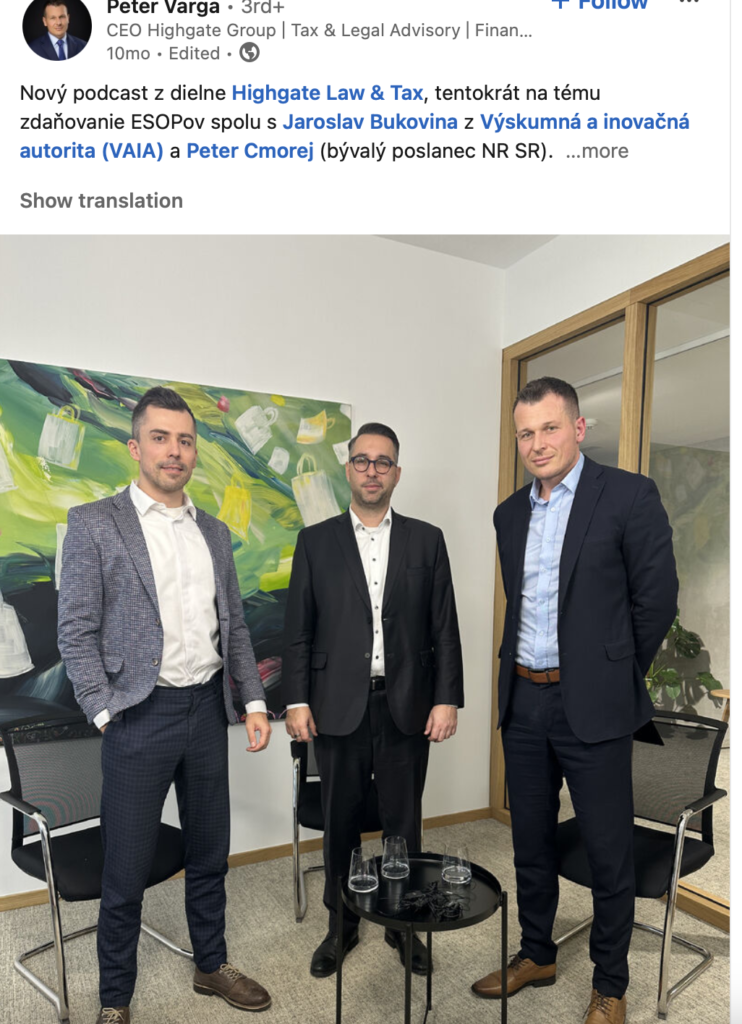

A new podcast from Highgate Law & Tax, this time on the topic of taxation of ESOPs with Jaroslav Bukovina from the Research and Innovation Authority (VAIA) and Peter Cmorej (former Member of the Slovak Parliament). In the period between October 2023, when I posted a critical commentary on its wording here (see below the post), and this podcast, the following has changed in the area of ESOP taxation: 1) a governmental amendment was passed modifying ESOP taxation as well (that’s the one that repealed the “crypto taxation” thing); 2) the view that only the face value of the ESOP-acquired interest is exempted, and not its real value, is much more settled. The latter point in particular is dramatic because this view fundamentally invalidates any application of the ESOP amendment. That is, if an ESOPist acquires an interest in a company that: ➡️ is sitting on significant and unrecaptured goodwill on the balance sheet (that’s even a simple estimate of this year’s earnings), the sharp interest should be taxed;
➡️ has its entire fair value captured in equity and the ESOPist acquires asymmetric economic rights, the sharp interest should be taxed;
➡️ combination (most common), the sharp interest should be taxed. Therefore, with ESOP structures, we still need to devise setups that minimize these taxation risks. However, this is not the only issue I discussed with my guests. We also discussed: 👉 Different ESOP structures;
👉 what (should) actually not be taxed (even after the government amendment);
👉 where the ESOP amendment has its technical flaws;
👉 the political dynamics of the 2020-2023 period;
👉 why technically flawed laws are created;
👉 the potential of the current state to respond flexibly to legislative imperfections Also in this podcast, we try a new format of presenting technical information in which the presenter (here, me) is also a content contributor to the debate (in this case, tax-law considerations). It’s something new, so we’d love your feedback VideoPodcast here: https://lnkd.in/eFCZhb7X
Law & Tax
Tomas Demo
tomas.demo@highgate.sk
Accounting
Peter Šopinec
peter.sopinec@highgate.sk
Crypto
Peter Varga
peter.varga@highgate.sk